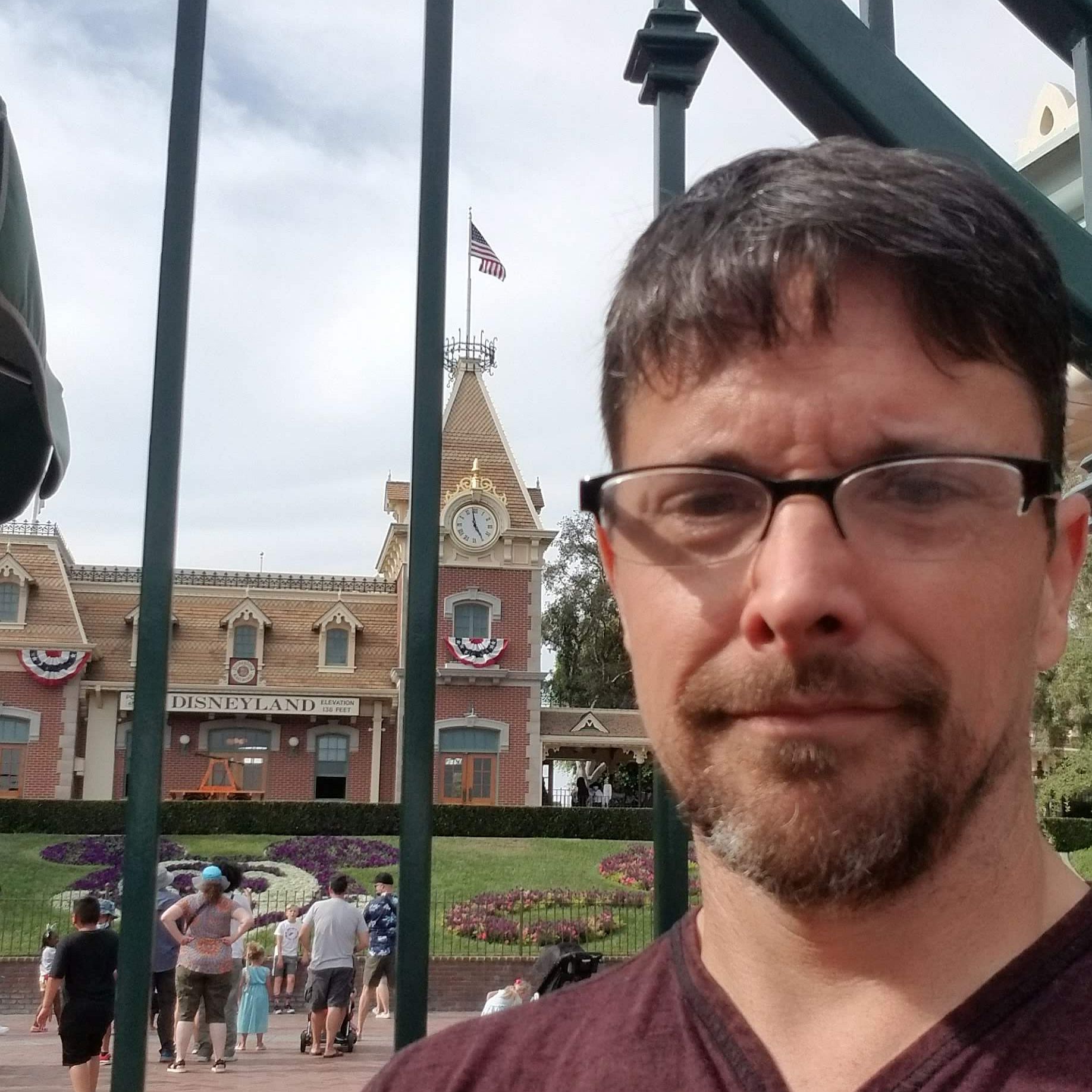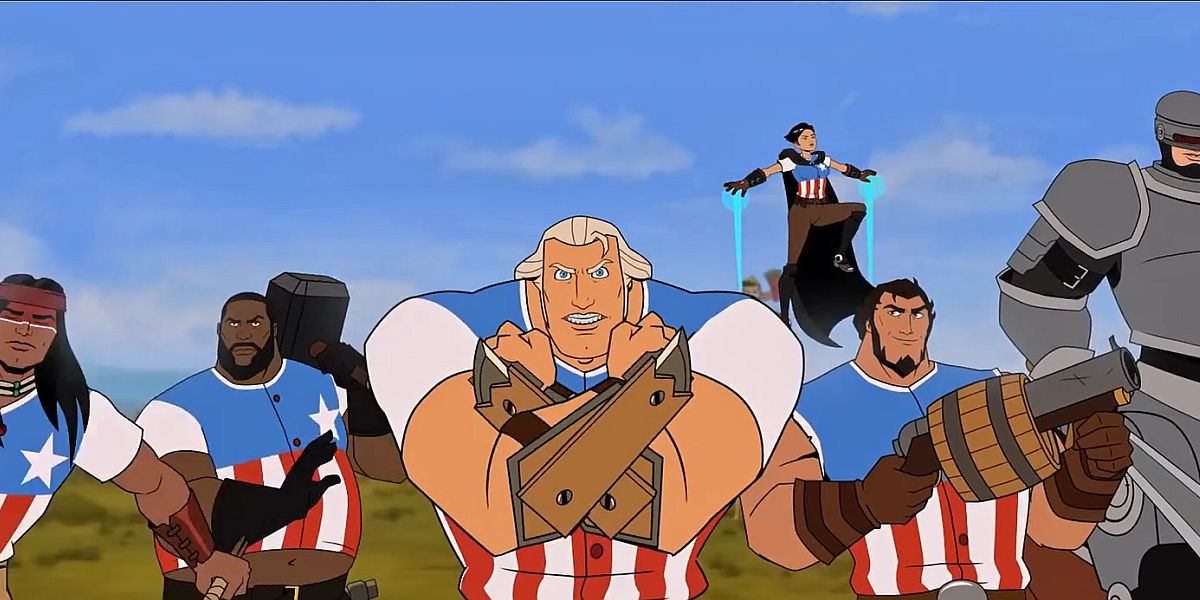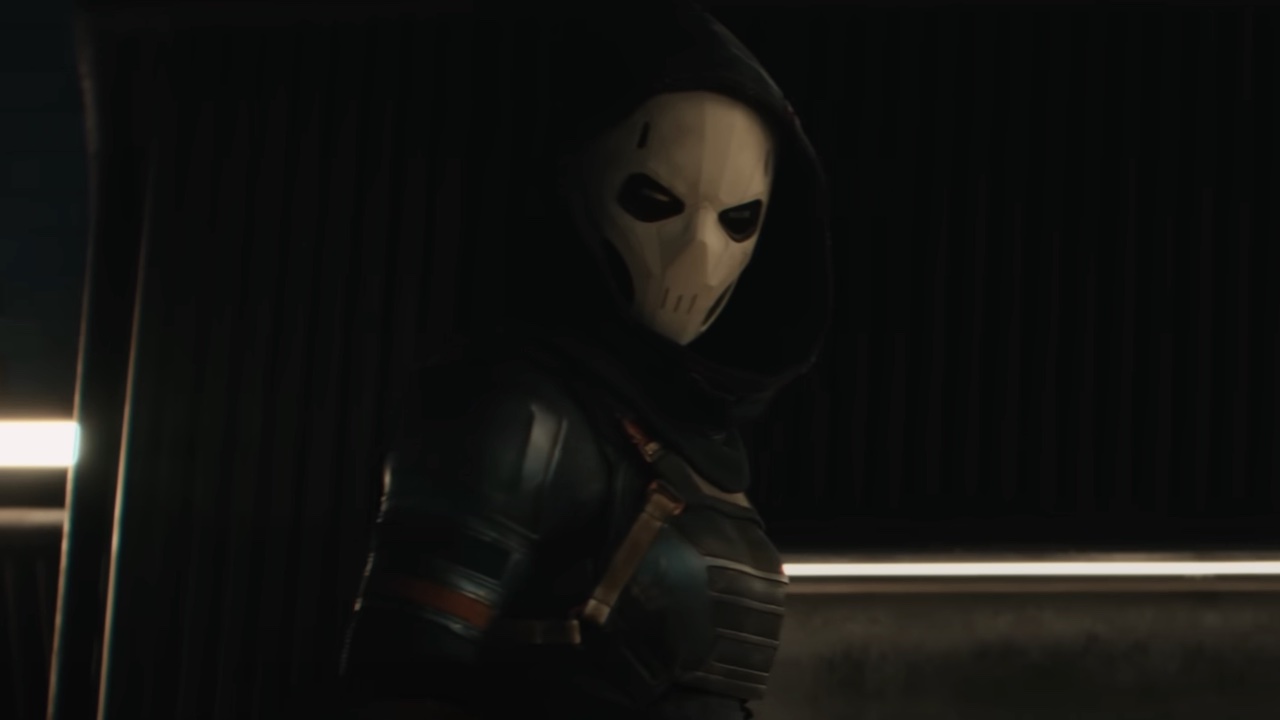This is either going to be the easiest or the hardest review I've ever written, because America: The Motion Picture is a movie that nearly defies description, making writing a review potentially difficult. The plot is simple enough to summarize; it's easy to say what it's about. But the challenge will come in any attempt to get under the surface of a movie that, quite simply has nothing under its surface. It is its plot description, and little else. It is a series of jokes loosely strung together by the thinnest of stories. That isn't a devastating knock against it – or at least it wouldn't be, if the movie had more than one joke or if the jokes actually said anything about anything.
As I said, the plot is simple. America: The Motion Picture is an animated film where George Washington (Channing Tatum) brings together a team of heroes – including a binge-drinking Samuel Adams (Jason Mantzoukas); a horse racing by way of Fast & Furious Paul Revere (Bobby Moynihan); and a female Chinese Thomas Edison (Olivia Munn) – to defeat the British, found America, and avenge the death of Abraham Lincoln (Will Forte) at the hands of Benedict Arnold (Andy Samberg)... who is a werewolf.
America: The Motion Picture has funny jokes, albeit buried among a lot of unfunny jokes.
Yes, the plot sounds like the fever dream of an elementary school student who got the flu while studying for an American history project. It is, in fact, the feature directorial debut of Matt Thompson, the mind behind the likes of Archer and Sealab 2021. Like those shows, America: The Motion Picture is ultimately a sendup of a genre, in this case modern superhero movies. This is intended to be The Avengers of American history, and so it's got all the plot and action beats you would expect from a movie of that nature. George Washington goes out to recruit all the others like Batman forming the Justice League. Some of them get along, some of them don't, but ultimately they realize they have common goals and come together. The American history mashup that puts centuries of characters and events in a single place is an understandable one considering the way that Americans tend to view the likes of George Washington and Abraham Lincoln as heroic individuals. Turning them into literal superheroes could have been an intriguing way to make a statement about the way we (incorrectly) idolize our forefathers, or even to say the opposite.
Instead, America: The Motion Picture is simply interested in stringing together gags with the plot simply there to justify more gags. It's a Naked Gun movie, but unfortunately it's more 33 1/3 than the original. This is not to say none of the jokes are funny. To be sure, America is virtually guaranteed to make you laugh occasionally, as the absolute deluge of jokes means it would be nearly impossible for a viewer not to find at least something humorous.
America: The Motion Picture thinks it has something to say, but it doesn't.
The premise itself is funny, especially if you're a student of history. When George Washington is at the "John Wilkes Merch Booth" at Ford's Theater, and complains about the excessive sales tax, and Booth calls him a tyrant, you laugh because it's an 1860s assassination joke and you feel smart for getting it. And then you pat yourself on the back for getting a few more jokes based in things you remember from history class. And then, eventually, you pat yourself on the back so much, so fast, that your arm starts to get tired.
But it's at about the point that George Washington crosses the Delaware River to escape the sinking Titanic that you realize that's the only club this movie has in its bag. Well, that and modern pop culture references. So it's two jokes. The movie has two jokes over and over again for 100 minutes. Except when they're the same joke, like when you notice Alexander Hamilton is in attendance at Abraham Lincoln's funeral, and you know it's him because he looks like Lin-Manuel Miranda.
And the jokes don't have anything interesting to say. The American history aesthetic is mostly a set dressing: if you're going to use it instead of something else, you might as well do something with it. And while there are a few jokes from the POC characters about how the white characters are totally racist (because they're totally racist), they're surface level jokes that aren't clever and don't try to get at anything deeper. Making a joke about how a racist character is now magically not racist anymore at the end of the story doesn't actually absolve the filmmakers of a script that makes the character magically not racist anymore.
You potentially could give America: The Motion Picture the benefit of the doubt if it demonstrated more self-awareness about its non-stop joke onslaught, but when the movie breaks the fourth wall for a gag about how you'd have to use something stupid like a cartoon to get a message through to white people, you realize that the film thinks it's being much more profound than it actually is.
Netflix might have been better served with a series, at least then you have built in breaks.
Oddly, it feels like this idea could have been better suited if it had been given more story real estate. Matt Thompson's background is primarily in television, and if this were a series you probably wouldn't get as tired of it as quickly. You could indulge for 20-30 minutes at a time and then take a break. As is, even at barely over an hour-and-a-half it feels too long. Of course, since this is a Netflix movie you can watch America: The Motion Picture as a custom cut limited series by just turning it off when you get tired and turning it back on if you feel up to it – but it's obviously not built for that viewing experience.
America: The Motion Picture has a hilarious premise. Unfortunately, most of the hilarity ends there. In the end, the film coasts on the idea that its premise will keep it going, and it simply doesn't. George Washington with Wolverine-style chainsaw hands is funny. But only the first time you see it. After that, you need a new joke, and it doesn't come up with one.

CinemaBlend’s resident theme park junkie and amateur Disney historian, Dirk began writing for CinemaBlend as a freelancer in 2015 before joining the site full-time in 2018. He has previously held positions as a Staff Writer and Games Editor, but has more recently transformed his true passion into his job as the head of the site's Theme Park section. He has previously done freelance work for various gaming and technology sites. Prior to starting his second career as a writer he worked for 12 years in sales for various companies within the consumer electronics industry. He has a degree in political science from the University of California, Davis. Is an armchair Imagineer, Epcot Stan, Future Club 33 Member.
‘Fool's Errand.' Until Dawn Is Not A Direct Adaptation Of The Video Game. Now We Know Why.
There's A Thunderbolts* Clip Showing The Team Facing Down Valentina, And Now I Have A New Theory About What's Going To Happen To Taskmaster
Viewers Kept Pointing Out Jeopardy’s Latest Champion Looks Like Sheldon Cooper, And Now The Big Bang Theory Fan In Me Can’t Unsee It











